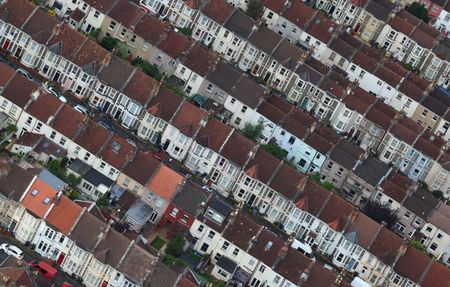BUCHAREST (Reuters) -Romanian Prime Minister Ilie Bolojan’s three-week old coalition government survived a no confidence vote on Monday, allowing it to push through unpopular tax hikes needed to lower the European Union’s largest budget deficit.
The government has fast-tracked through parliament an increase in value-added tax, excise duties and other levies from August to prevent a ratings downgrade to below investment level and to unblock access to EU funds.
The broad coalition of four pro-European parties took power at the end of June, ending months of political deadlock after a presidential election was cancelled in December and was re-run in May.
The parties have been reluctant to agree the hikes that have been criticised by employers and unionists while thousands of public sector workers have staged protests.
The hard-right opposition filed Monday’s no confidence motion and said it will file more.
“I understand the opposition does not agree with the measures proposed by the government,” Bolojan told lawmakers.
“What then are the solutions? On the one hand we are told the problems in the economy are serious, on the other not to take these measures. We can’t have both.”
While all four parties in the government approved the increases, the Social Democrats, the coalition’s largest party without which a ruling majority cannot hold, criticised them on Monday.
“For solid, continued political support we must quickly correct some of the absurd things from this first package of measures,” Social Democrat leader Sorin Grindeanu said.
The Social Democrats had supported replacing a flat rate of tax on income with progressive taxation instead of raising VAT, but the other parties did not support that and the tax authority has said it is not equipped to enforce it.
Bolojan said earlier this month the coalition government would do everything possible to lower the deficit to around 8% of economic output by year-end from last year’s 9.3% – above an initial 7% target – and closer to 6% in 2026.
Under Romanian law, the tax measures could be challenged in the constitutional court, and the opposition last week said they would seek to do so.
(Reporting by Luiza Ilie; editing by Barbara Lewis)











